- Home
- Jim Butcher
Codex Alera 06 - First Lord's Fury
Codex Alera 06 - First Lord's Fury Read online
Table of Contents
Title Page
Copyright Page
Dedication
Acknowledgements
CHAPTER 1
CHAPTER 2
CHAPTER 3
CHAPTER 4
CHAPTER 5
CHAPTER 6
CHAPTER 7
CHAPTER 8
CHAPTER 9
CHAPTER 10
CHAPTER 11
CHAPTER 12
CHAPTER 13
CHAPTER 14
CHAPTER 15
CHAPTER 16
CHAPTER 17
CHAPTER 18
CHAPTER 19
CHAPTER 20
CHAPTER 21
CHAPTER 22
CHAPTER 23
CHAPTER 24
CHAPTER 25
CHAPTER 26
CHAPTER 27
CHAPTER 28
CHAPTER 29
CHAPTER 30
CHAPTER 31
CHAPTER 32
CHAPTER 33
CHAPTER 34
CHAPTER 35
CHAPTER 36
CHAPTER 37
CHAPTER 38
CHAPTER 39
CHAPTER 40
CHAPTER 41
CHAPTER 42
CHAPTER 43
CHAPTER 44
CHAPTER 45
CHAPTER 46
CHAPTER 47
CHAPTER 48
CHAPTER 49
CHAPTER 50
CHAPTER 51
CHAPTER 52
CHAPTER 53
CHAPTER 54
CHAPTER 55
CHAPTER 56
CHAPTER 57
EPILOGUE
Also by Jim Butcher
The Codex Alera
FURIES OF CALDERON
ACADEM’S FURY
CURSOR’S FURY
CAPTAIN’S FURY
PRINCEPS’ FURY
FIRST LORD’S FURY
The Dresden Files
STORM FRONT
FOOL MOON
GRAVE PERIL
SUMMER KNIGHT
DEATH MASKS
BLOOD RITES
DEAD BEAT
PROVEN GUILTY
WHITE NIGHT
SMALL FAVOR
TURN COAT
THE BERKLEY PUBLISHING GROUP
Published by the Penguin Group
Penguin Group (USA) Inc.
375 Hudson Street, New York, New York 10014, USA
Penguin Group (Canada), 90 Eglinton Avenue East, Suite 700, Toronto, Ontario M4P 2Y3, Canada
(a division of Pearson Penguin Canada Inc.)
Penguin Books Ltd., 80 Strand, London WC2R 0RL, England
Penguin Group Ireland, 25 St. Stephen’s Green, Dublin 2, Ireland (a division of Penguin Books Ltd.)
Penguin Group (Australia), 250 Camberwell Road, Camberwell, Victoria 3124, Australia
(a division of Pearson Australia Group Pty. Ltd.)
Penguin Books India Pvt. Ltd., 11 Community Centre, Panchsheel Park, New Delhi—110 017, India
Penguin Group (NZ), 67 Apollo Drive, Rosedale, North Shore 0632, New Zealand
(a division of Pearson New Zealand Ltd.)
Penguin Books (South Africa) (Pty.) Ltd., 24 Sturdee Avenue, Rosebank, Johannesburg 2196,
South Africa
Penguin Books Ltd., Registered Offices: 80 Strand, London WC2R 0RL, England
This is an original publication of The Berkley Publishing Group.
This is a work of fiction. Names, characters, places, and incidents either are the product of the author’s imagination or are used fictitiously, and any resemblance to actual persons, living or dead, business establishments, events, or locales is entirely coincidental. The publisher does not have any control over and does not assume any responsibility for author or third-party websites or their content.
Copyright © 2009 by Jim Butcher.
All rights reserved.
No part of this book may be reproduced, scanned, or distributed in any printed or electronic form without
permission. Please do not participate in or encourage piracy of copyrighted materials in violation of the
author’s rights. Purchase only authorized editions.
ACE and the “A” design are trademarks of Penguin Group (USA) Inc.
Library of Congress Cataloging-in-Publication Data
eISBN : 978-1-101-15151-8
1. Imaginary places—Fiction. 2. Imaginary wars and battles—Fiction. I. Title.
PS3602.U85F57 2009
813’.6—dc22
2009037610
http://us.penguingroup.com
For our own Knights and legionares,
the men and women of the United States Armed Forces.
If you didn’t do what you do, I couldn’t do what I do. Thank you.
ACKNOWLEDGMENTS
This one owes deep debts of gratitude to my editor, Anne Sowards, who deserves something for having to put up with me. Another big thank-you goes out to Priscilla, for going above and beyond the call of fandom in helping make the map of Alera, finally. Thanks also to the many fans at the jim-butcher.com forums, whose efforts helped us to refine and create the map by providing us with multiple reference points upon the maps they have made.
And, as ever, thank you, Shannon and JJ.
PROLOGUE
The steadholt was located several miles south of the ruined wasteland that had once been Alera Imperia, and it was an old one. Windmanes had not been sighted there in more than six centuries. Furystorms had been absent for even longer than that. The land, for miles about, had been a patchwork of farmlands, steadholts, villages, and roads for hundreds of years. Wild furies had been so few and so feeble that they were all but extinct.
As a result, the little steadholt had not been built with stone walls surrounding it, or with a heavy stone central hall for shelter from fury-inspired weather. It was instead a collection of cottages and small houses, where each family had lived in its own home, separate from the others.
But all that had been before the vord came.
Invidia Aquitaine stood at the outskirts of the little steadholt, hidden in the shadows.
Shadows were abundant these days, she reflected.
The newborn volcano that stood as a gravestone for Gaius Sextus, the final First Lord of Alera, had continued to spew forth clouds of dark smoke and ash in the days and weeks after its creation. Even now, the sky was covered with low clouds that would release spring rain in fitful sputters or maniacal bursts. Sometimes the rain was yellow, or red, and sometimes green. The clouds themselves were dimly lit, even at night, by an angry scarlet light from the fire-mountain to the north—and in every other direction by the steady, haunting green glow of the croach, the waxy growth that covered the ground, the trees, the buildings, and every other feature of the land the vord had claimed for their own.
Here the vord had driven their presence the deepest. Here, at the heart of what had once been Alera, they had taken the most. The croach, the living presence of the vord, covered everything for a hundred miles in every direction, choking all other life from the land.
Except here.
The little steadholt was green. Its kitchen gardens were well under way despite the fact that summer had not quite arrived. Its modest-sized field already promised a fine crop of grain. Wind sighed in the leaves of its enormous old trees. Its animals grazed upon the grass of a rich pasture. In the darkness, if one ignored the eerily lit sky, the green glow of croach stretching to the horizon in every direction, and the occasional alien shriek of one of the vord, it looked like a normal, prosperous Aleran steadholt.
Invidia shuddered.
The parasit
e on her torso reacted to the motion with an uncomfortable ripple of its own. Since its dozen awl-tipped legs were wrapped around her, their sharp tips sunk inches into her flesh, it caused pain. It was nothing compared to the agony she suffered as its head twisted, its eyeless face and branching mandibles sunken into the flesh between two of her ribs, burrowed invasively into her innards.
Invidia loathed the creature—but it was all that kept her alive. The poison upon the balest bolt that had nearly taken her life had spread all through her body. It had festered there, growing, devouring her from within, so swiftly and perniciously that even her own ability to restore her body via furycraft had been overwhelmed. She had fought it for days as she stumbled away from civilization, certain that she was being pursued, barely conscious as the struggle in her body raged. And when she had realized that the struggle could end in only one way, she found herself lying upon a wooded hillside and knew that she was going to die.
But the vord Queen had come to her. The image of that creature, staring down at her without an ounce of pity or empathy, had been burned into her nightmares.
Invidia had been desperate. Terrified. Delirious with poison and fever. Her body had been so knotted with shivering against the fever-cold that she literally had not been able to feel her arms and legs. But she could feel the vord Queen, the creature’s alien presence inside her thoughts, sifting through them one by one as they tumbled and spun in the delirium.
The Queen had offered to save Invidia’s life, to sustain her, in exchange for her service. There had been no other option but death.
Though they sent a wave of agony washing through her body, she ignored the parasite’s torturous movements. Like shadows, there was, of late, also an abundance of pain.
And a small voice that whispered to her from some dark, quiet corner of her heart told her that she deserved it.
“You keep coming back here,” said a young woman at her elbow.
Invidia felt herself twitch in surprise, felt her heart suddenly race, and the parasite rippled, inflicting further torment. She closed her eyes and focused on the pain, let it fill her senses, until there was no semblance of fear remaining in her mind.
One never showed fear to the vord Queen.
Invidia turned to face the young woman and inclined her head politely. The young Queen looked almost like an Aleran. She was quite exotically lovely, with an aquiline nose and a wide mouth. She wore a simple, tattered gown of green silk that left her shoulders bare, displaying smooth muscle and smoother skin. Her hair was long, fine, and white, falling in a gently waving sheet to the backs of her thighs.
Only small details betrayed her true origins. Her long fingernails were green-black talons, made of the same steel-hard vord chitin that armored her warriors. Her skin had an odd, rigid appearance, and almost seemed to reflect the distant ambient light of the croach, showing the faint green tracings of veins beneath its surface.
Her eyes were what frightened Invidia, even after months in her presence. Her eyes were canted up slightly at the corners, like those of the Marat barbarians to the northeast, and they were completely black. They shone with thousands of faceted lenses, insectlike, and watched the world with calm, unblinking indifference.
“Yes, I suppose I do,” Invidia replied to her. “I told you that this place represents a risk. You seem unwilling to listen to my advice. So I have taken it upon myself to monitor it and ensure that it is not being used as a base or hiding place for infiltrators.”
The Queen shrugged a shoulder, unconcerned. The movement was smooth but somehow awkward—it was a mannerism she had copied but clearly did not understand. “This place is guarded ceaselessly. They could not enter it undetected.”
“Others have said as much and been mistaken,” Invidia warned her. “Consider what Countess Amara and Count Bernard did to us last winter.”
“That area had not been consolidated,” the Queen replied calmly. “This one has.” She turned her eyes to the little houses and tilted her head. “They gather together for food at the same time every night.”
“Yes,” Invidia said. The Aleran holders who dwelt in the little steadholt in cobbled-together households had been working the fields and going about the business of a steadholt as if they were not the only ones of their kind living within a month’s hard march.
They had no choice but to work the fields. The vord Queen had told them that if they did not, they would die.
Invidia sighed. “Yes, at the same time. It’s called ‘dinner’ or ‘supper.’ ”
“Which?” the Queen asked.
“In practice, the words are generally interchangeable.”
The vord Queen frowned. “Why?”
She shook her head. “I do not know. Partly because our ancestors spoke a number of different tongues and—”
The vord Queen turned her eyes to Invidia. “No,” she said. “Why do they eat together?” She turned her eyes back to the little houses. “There exists the possibility that the larger and stronger would take the food of the weaker creatures. Logic dictates that they should eat alone. And yet they do not.”
“There is more to it than simple sustenance.”
The Queen considered the cottage. “Alerans waste time altering their food through various processes. I suppose eating together reduces the inefficiency of that practice.”
“It does make cooking simpler, and it is partly why it is a practice,” Invidia said. “But only in part.”
The Queen frowned more deeply. “Why else eat in such a fashion?”
“To be with one another,” Invidia said. “To spend time together. It’s part of what builds a family.”
Great furies knew that was true. She could count on her fingers the number of meals she had taken with her father and brothers.
“Emotional bonding,” the vord Queen said.
“Yes,” Invidia said. “And . . . it is pleasant.”
Empty black eyes looked at her. “Why?”
She shrugged. “It gives one a sense of stability,” she said. “A daily ritual. It is reassuring to have that part of the day, to know that it will happen every day.”
“But it will not,” the Queen said. “Even in their natural habitat, it is not a stable circumstance. Children grow and leave homes. Routines are disrupted by events beyond their control. The elderly die. The sick die. They all die.”
“They know that,” Invidia said. She closed her eyes and for an instant thought of her mother, and the too-brief time she had been allowed to share her table, her company, and her love with her only daughter. Then she opened her eyes again and forced herself to look at the nightmare world around her. “But it does not seem that way, when the food is warm and your loved ones are gathered with you.”
The vord Queen looked at her sharply. “Love. Again.”
“I told you. It is the primary emotion that motivates us. Love for others or for oneself.”
“Did you take meals like this?”
“When I was very young,” Invidia said, “and only with my mother. She died of disease.”
“And it was pleasant to have dinner?”
“Yes.”
“Did you love her?”
“As only children can,” Invidia said.
“Did she love you?”
“Oh, yes.”
The vord Queen turned to face Invidia fully. She was silent for two full minutes, and when she finally spoke, the words were spread apart carefully for emphasis—it gave the question a surprisingly hesitant, almost childlike, quality. “What did it feel like?”
Invidia didn’t look at the young woman, the young monster that had already destroyed most of the world. She stared through the nearest set of windows at the dinner being set down at the table.
About half of the people inside were Placidans, taken when the vord had completed their occupation of Ceres and moved forward over the rolling plains of that city’s lands. They included an old man and woman who were actually a couple. There was a young mother there, w
ith two children of her own and three more that the vord had deposited in her care. There was a man of early middle age who sat beside her, an Imperian farmer who had not been wise enough or swift enough to avoid capture when the vord came for Alera Imperia and the lands around her. Adults and children alike were tired from a day at work on the steadholt. They were hungry, thirsty, and glad of the simple meal prepared for them. They would spend some time together in the hearth room after the meal, take a few hours of time to themselves with full stomachs and pleasantly weary bodies, then they would sleep.
Invidia stared at the little family, thrown together like a mass of driftwood by the fortunes of invasion and war and clinging to one another all the more strongly because of it. Even now, here, at the end of all things, they reached out to one another, offering what comfort and warmth they could, especially to the children. She nodded toward the candlelit table, where the adults actually shared a few gentle smiles with one another, and the children sometimes smiled and even laughed.
“Like that,” she said quietly. “It felt like that.”
The young Queen stared at the cottage. Then she said, “Come.” She strode forward, graceful and pitiless as a hungry spider.
Invidia ground her teeth and remained where she stood. She did not want to see more death.
The parasite writhed in agonizing reproof.
She followed the vord Queen.
The Queen slammed the door open, disdaining the doorknob, to shatter its entire frame. Though she had displayed it on rare occasions before, her raw physical might was unbelievable from such a slender figure—even to Invidia, who was well used to seeing earthcrafters perform feats of superhuman strength. The Queen strode over the splinters and into the kitchen, where the little family took their dinner at a table.
They all froze. The youngest of the children, a beautiful male child perhaps a year old, let out a short wail, which the young mother silenced by seizing the child and placing her hand over his mouth.

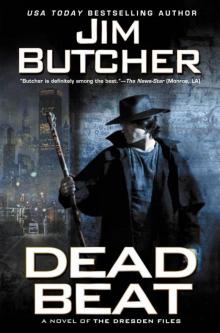 Dead Beat
Dead Beat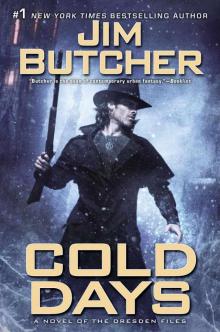 Cold Days
Cold Days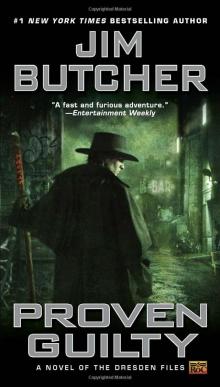 Proven Guilty
Proven Guilty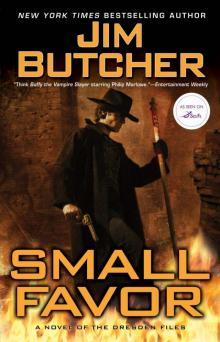 Small Favor
Small Favor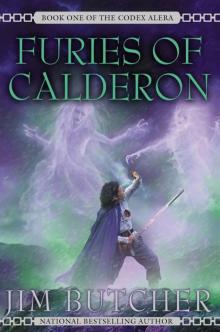 Furies of Calderon
Furies of Calderon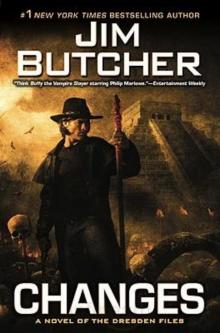 Changes
Changes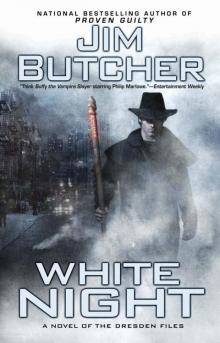 White Night
White Night Death Masks
Death Masks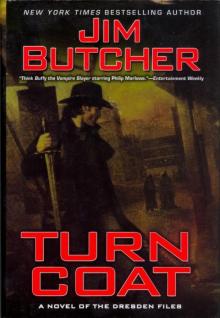 Turn Coat
Turn Coat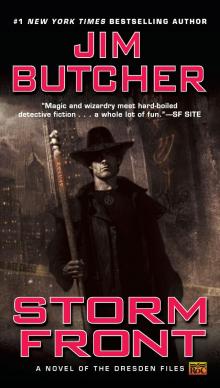 Storm Front
Storm Front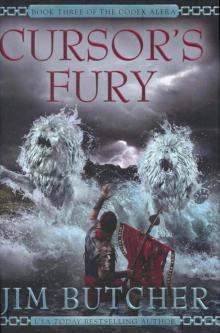 Cursor's Fury
Cursor's Fury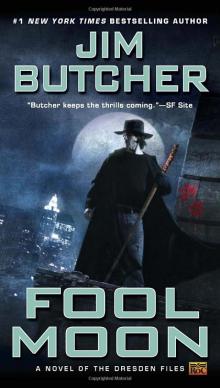 Fool Moon
Fool Moon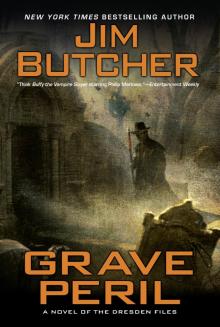 Grave Peril
Grave Peril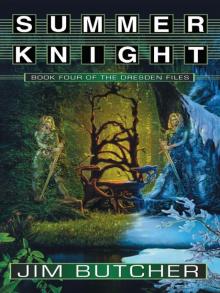 Summer Knight
Summer Knight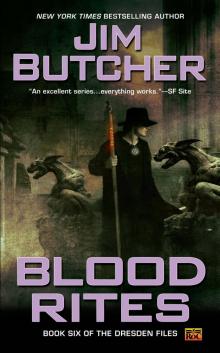 Blood Rites
Blood Rites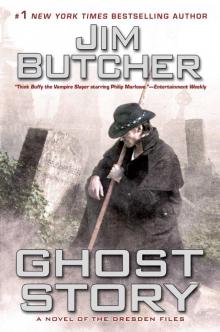 Ghost Story
Ghost Story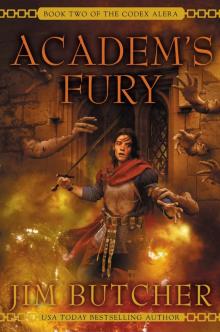 Academs Fury
Academs Fury Princeps' Fury
Princeps' Fury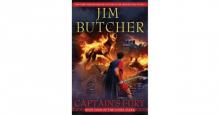 Captains Fury
Captains Fury Jim Butcher - Dresden Files Omnibus
Jim Butcher - Dresden Files Omnibus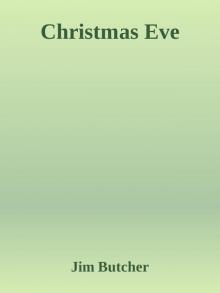 Christmas Eve
Christmas Eve Battle Ground
Battle Ground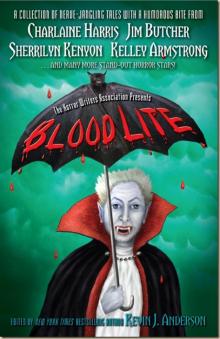 Blood Lite
Blood Lite Peace Talks
Peace Talks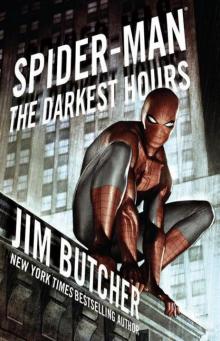 Spider-Man - The Darkest Hours
Spider-Man - The Darkest Hours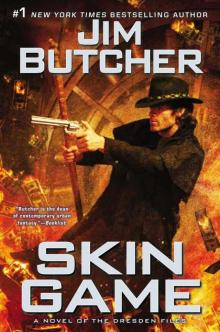 Skin Game
Skin Game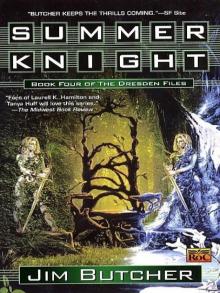 The Dresden Files 4: Summer Knight
The Dresden Files 4: Summer Knight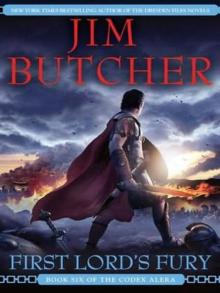 First Lord's Fury ca-6
First Lord's Fury ca-6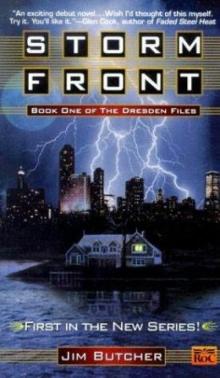 Storm Front df-1
Storm Front df-1 Princeps Fury ca-5
Princeps Fury ca-5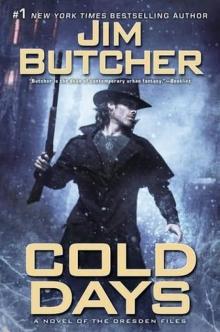 Cold Days df-14
Cold Days df-14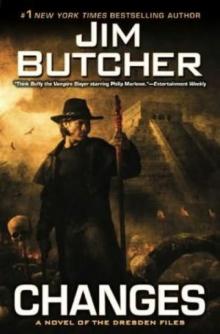 Changes df-12
Changes df-12 Urban Enemies
Urban Enemies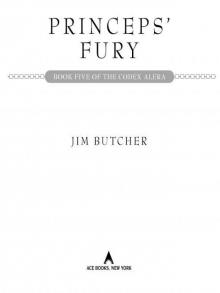 Princeps' Fury (Codex Alera)
Princeps' Fury (Codex Alera)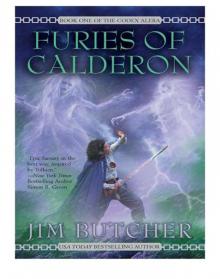 Codex Alera 01 - Furies of Calderon
Codex Alera 01 - Furies of Calderon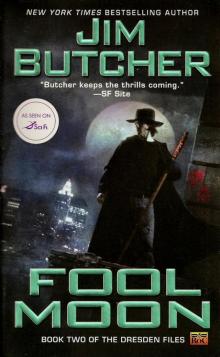 Dresden Files 02 - Fool Moon
Dresden Files 02 - Fool Moon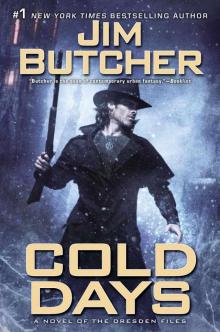 Cold Days: A Novel of the Dresden Files
Cold Days: A Novel of the Dresden Files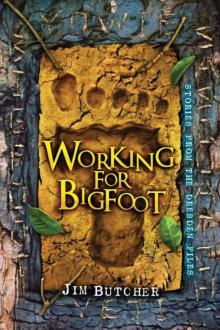 Working for Bigfoot
Working for Bigfoot Side Jobs
Side Jobs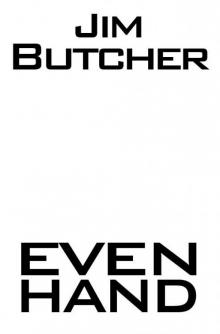 Even Hand
Even Hand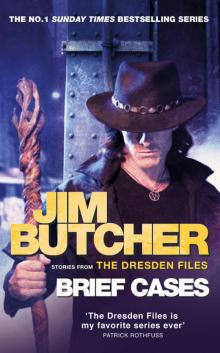 Brief Cases: The Dresden Files
Brief Cases: The Dresden Files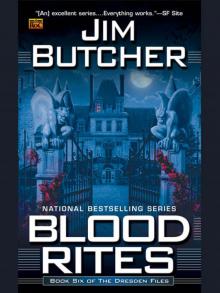 Blood Rites: Book Six of the Dresden Files
Blood Rites: Book Six of the Dresden Files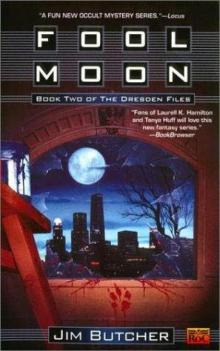 Fool Moon df-2
Fool Moon df-2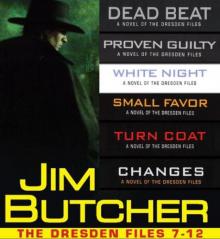 The Dresden Files Collection 7-12
The Dresden Files Collection 7-12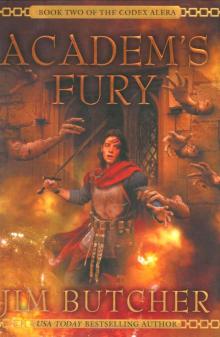 Academ's Fury ca-2
Academ's Fury ca-2 The Dresden Files 3: Grave Peril
The Dresden Files 3: Grave Peril Grave Peril df-3
Grave Peril df-3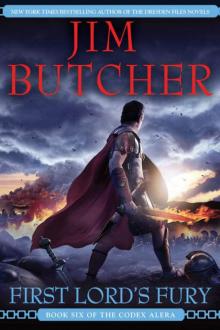 Codex Alera 06 - First Lord's Fury
Codex Alera 06 - First Lord's Fury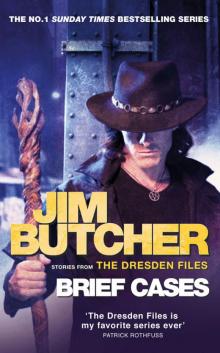 Brief Cases
Brief Cases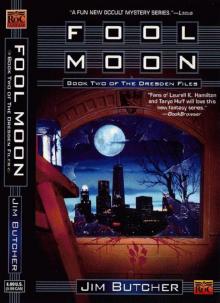 Dresden Files Book 02: Fool Moon
Dresden Files Book 02: Fool Moon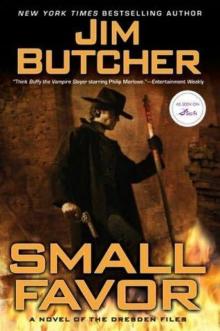 SMALL FAVOR tdf-10
SMALL FAVOR tdf-10 Bigfoot on Campus
Bigfoot on Campus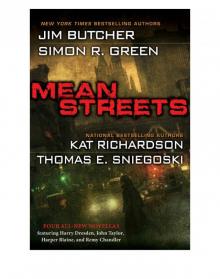 Mean Streets
Mean Streets Dead Beat df-7
Dead Beat df-7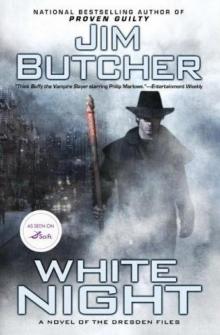 White Night df-9
White Night df-9 Shadowed Souls
Shadowed Souls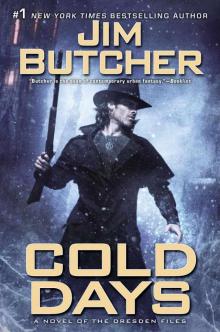 Dresden Files 14 - Cold Days
Dresden Files 14 - Cold Days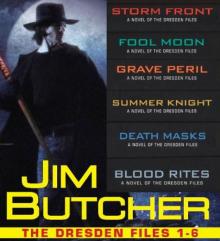 The Dresden Files Collection 1-6
The Dresden Files Collection 1-6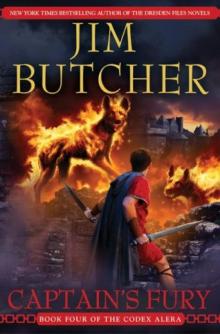 Captain's Fury ca-4
Captain's Fury ca-4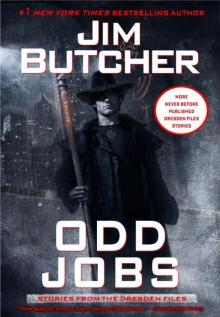 Odd jobs sftdf-2
Odd jobs sftdf-2 The Dresden Files 1: Storm Front
The Dresden Files 1: Storm Front Blood Rites df-6
Blood Rites df-6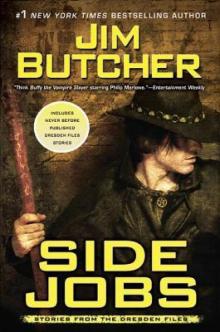 Side Jobs: Stories from the Dresden Files
Side Jobs: Stories from the Dresden Files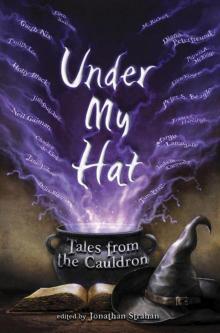 B is for Bigfoot
B is for Bigfoot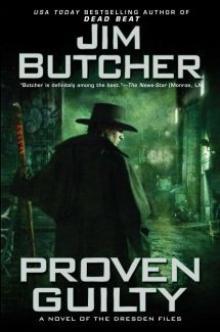 Proven Guilty df-8
Proven Guilty df-8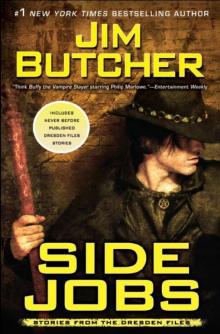 Dresden Files SSC01 - Side Jobs
Dresden Files SSC01 - Side Jobs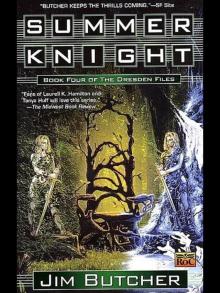 Summer Knight: Book Four of the Dresden Files
Summer Knight: Book Four of the Dresden Files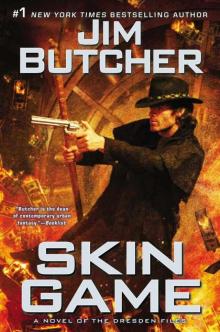 Skin Game: A Novel of the Dresden Files
Skin Game: A Novel of the Dresden Files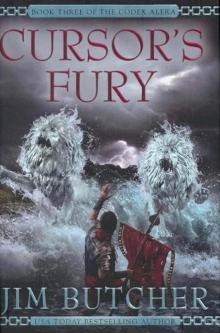 Cursors's Fury ca-3
Cursors's Fury ca-3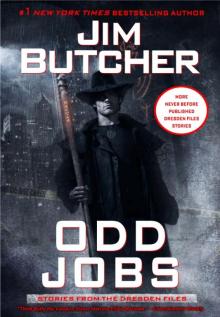 Dresden Files SSC02 - Odd Jobs
Dresden Files SSC02 - Odd Jobs Death Masks df-5
Death Masks df-5 Restoration of Faith (the dresden files)
Restoration of Faith (the dresden files)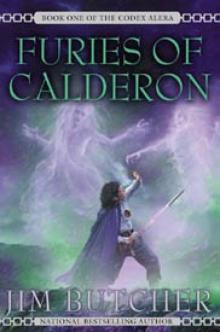 Furies of Calderon ca-1
Furies of Calderon ca-1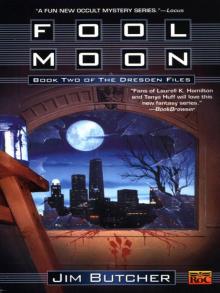 The Dresden Files 2: Fool Moon
The Dresden Files 2: Fool Moon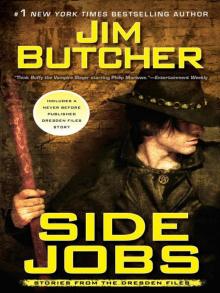 Dresden files:Side jobs (dresden files:short stories)
Dresden files:Side jobs (dresden files:short stories) I Was a Teenage Bigfoot
I Was a Teenage Bigfoot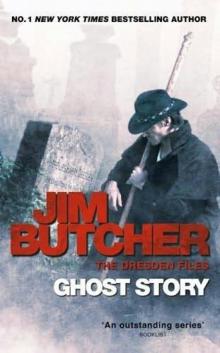 Ghost Story df-13
Ghost Story df-13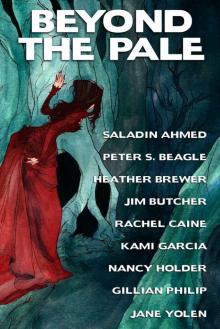 Beyond the Pale: A fantasy anthology
Beyond the Pale: A fantasy anthology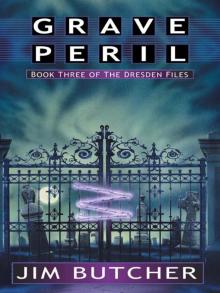 Dresden Files 03 - Grave Peril
Dresden Files 03 - Grave Peril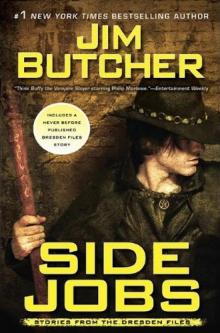 Side Jobs df-13
Side Jobs df-13